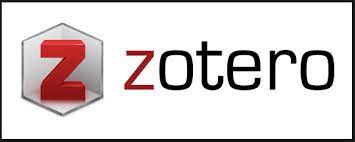THE INFLUENCE OF WORK PRESSURE ON EMPLOYEE PERFORMANCE WITH WORKLOAD AS A MODERATING VARIABLE
Keywords:
Work Pressure, Employee Performance, WorkloadAbstract
This study is a quantitative study with an explanatory approach. The data used in this article are primary data that researchers obtained from Ibox employees spread throughout Indonesia. The data obtained by researchers came from questionnaire items that were distributed containing 5 statement items, namely statements strongly agree, agree, normal, disagree, and strongly disagree which were analyzed using the smart PLS 4.0 analysis tool. The result in this article show that each variable used in this article is acceptable and ducbitika because the P-Value is positive and below the significance level of 0.05, which is 0.004. This is because the higher the internal work pressure owned by an employee can make employees more motivated so that they are more enthusiastic in working and ultimately can improve the Employee's Performance itself. In line with the first hypothesis, the second hypothesis also shows similar results if the Workload variable can strengthen the influence of Internal Work Pressure on Employee Performance, this is caused by the same thing, namely the P-Values which are positive and below the significance level of 0.05, namely 0.000, which is more significant than direct testing of 0.04. Thus it can be concluded that the first and second hypotheses in this article can be accepted and proven.
Downloads
References
Abdurahman, Soejana. 2016. Metodologi Penelitian. Jakarta: Sinar Grafika.
Allska Ramdyani. 2017. 2 Jurnal Akuntansi “Pengaruh Tekanan Kerja Terhadap Kinerja Karyawan.” IAIN Palopo.
Ayu, Nyoman, Trisa Mustika, Ni Made, and Swasti Wulanyani. 2017. “TURNOVER PADA KARYAWAN BANK DI DENPASAR Nyoman Ayu Trisa Mustika Dewi , Ni Made Swasti Wulanyani.” Jurnal Psikologi Udayana 4(2): 399–412.
Ghozali, I. 2016. Aplikasi Analisis Multivariete Dengan Program (IBM. SPSS). Diponergoro: Univrsitas Dipenogoro.
Handoko. 2000. Manajemen Personalia & Sumber Daya Manusia. Yogyakarta: BPFE.
Huda, Miftakhul, and Fikri Farhan. 2019. “Pengaruh Budaya Organisasional Dan Komitmen Organisasional.” Jurnal Manajemen Motivasi 15(2): 62.
Jonathan Sarwono. 2016. Meode Penelitian Kualitatif Dan Kuantitatif. Bandung: Graha Ilmu.
Lestari, Endah Rahayu, and Nur Kholifatul Fithriyah Ghaby. 2018. “The Influence of Organizational Citizenship Behavior (OCB) on Employee’s Job Satisfaction and Performance.” Industria: Jurnal Teknologi dan Manajemen Agroindustri 7(2): 116–23.
Mangkunegara, Anwar Prabu. 2013. Evaluasi Kinerja SDM. Bandung: Refika Aditama.
RIDA OKTARI YANESTI. 2018. 7 UNIVERSITAS MEDAN AREA MEDAN “PENGARUH ETIKA KERJA DAN PROMOSI JABATAN TERHADAP KINERJA KARYAWAN PADA PT.TIRTA SIBAYAKINDO KABUPATEN KARO.” UNIVERSITAS MEDAN AREA MEDAN.
Robbins. 2008. Perilaku Organisasi, Edisi Kesepuluh. Jakarta: PT. Mancanajaya Cemerlang.
Robbins, P. S. 2018. Perilaku Organisasi. Jakarta: Prehalindo.
Robbins, S.P. 1996. Perilaku Organisasi, Konsep, Kontroversi Dan Aplikasi, Edisi Keenam.
Jakarta: PT.Bhuana Ilmu Populer.
Sarstedt, Marko et al. 2014. “Partial Least Squares Structural Equation Modeling (PLS- SEM): A Useful Tool for Family Business Researchers.” Journal of Family Business Strategy 5(1): 105–15.
Sugiyono. 2019. Metode Penelitian Kuantitatif, Kualitatif, R&D.
Syakban, Rizham. 2017. “Pengaruh Stres Kerja, Gaya Kepemimpinan, Dan Motivasi Terhadap Kinerja Karyawan Pada PT.Bank Sumut Cabang Sukaramai.” Universitas Sumatera Utara.
Teguh, Retnoningsih, Sunuharjo Bambang Swasto, and Ruhana Ika. 2017. “PENGARUH
KOMPENSASI TERHADAP KEPUASAN KERJA DAN KINERJA KARYAWAN (Studi
Pada Karyawan PT PLN (Persero) Distribusi Jawa Timur Area Malang).” jurnal Administrasi Bisnis (JAB) 35(2): 1–9.








